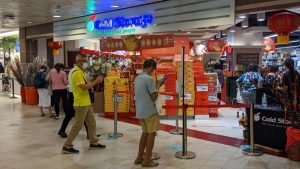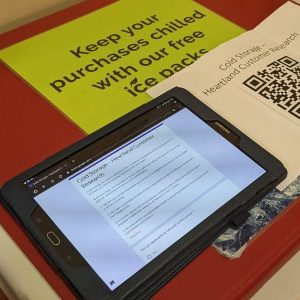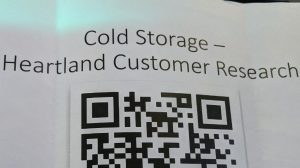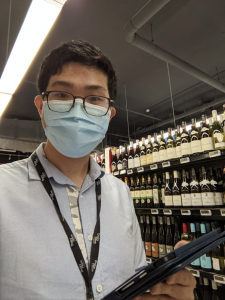I was recently listening to a news report in 2020 by Singapore state-owned media CNA, where Chief HR Officer of Singapore University of Technological Design, Dr Jaclyn Lee, outlined three of the most important skills to have in this new digital economy:
- Analytical and Computational Thinking Skills
- Innovation and Thinking out of the box
- Social Media Marketing
The interview particularly resonated with me as these are the skills which I have previously identified were important for my career development and listed as my top 3 skills on LinkedIn, and also in the summary statement too (Social Media is one form of Digital!) As my blog was created with the specific purpose to educate juniors and adult learners on analytics, innovation and marketing, I believed that it would be apt to share from my experience how I managed to build up my Analytics, Innovation and Social Media knowledge.
1. Analytics and Computational Thinking
Analytical skills has been around for the longest time, we may not know it, but the critical learning skills we have been exposed to all our lives also applies in terms of analytics.
For me, I acquired my analytics skills from my Business Analytics Education at Nanyang Business School! There are also several other Universities like National University of Singapore and Singapore Management University which has analytics courses as well!
Another way to gain this knowledge is from online courses. Coursera, EdX, Udemy are examples of online sites with free courses. In Singapore, the WSQ also offers adult learning courses in multiple courses including analytics and computational thinking!
To hear more about why I decided to specialise in Business Analytics, do read this post!
I also used my analytics knowledge to decipher the content of spam comments here!
2. Innovation
My experience with innovation is that the responsibility to build innovation lies in yourself. I always believed that I am an out-of-box thinker who will constantly find new ways to do things. These are some ways you could try improving on innovation!
I. Find new ways to do a project
Have you completed a work project or an assignment at school before and performed well? Now, think of another approach you could try to achieve the same, if not a better outcome. Many people would think that the end result is always important. While the end result is important, I always believe that the process is as well. Sometimes, I find myself consistently asking how I can do something better. While it does not always work, the thought process is also a good learning opportunity.
II. Get yourself more exposure to multiple fields
This may seem counter-intuitive to many who are interested in building their career in a one-track path, but from my experience, this was one way where I had the exposure to more innovation. I was fortunate to be able to do three MNC internships, where I had the exposure to the human resource, market research, product marketing and digital marketing functions, in the automotive, information technology and medical device industries. If you require some assistance in securing more MNC internships, do read this post!
I also had the chance to try out the consumer goods, retail and e-commerce industry at the same time by running my own startup, EcoTumble, where we offered Food Storage and Drinkware Solutions. While I was in charge of the marketing function, it was also important to learn how everything came together. Therefore, I also had the chance to take part in logistics, procurement, sales and strategy aspects of the business. I did this as part of the Minor in Entrepreneurship Programme in NTU, which I felt was a transformative experience and definitely recommend!
III. Always keep a continuous learning mindset
Adding a new point after having had a week of e-learning as a work incentive. As the saying goes, change is the only constant. In order to keep abreast of what our customer needs, we need to not only constantly change the environment, but also ourselves. In order to expose to more open innovation, learning is an integral part of it all. I had the chance to look through some of my general paper notes in junior college and realised the opportunity to read widely allowed me to learn so much more about how various parts of the economy are intertwined together in order to deliver value to consumers. Ultimately, innovation brings a solution to a unique problem that is faced based on changes in the economy.
3. Social Media Marketing
For people who grew up as digital natives, social media should be nothing foreign to us. For those who did not have the privilege of being exposed to social media since young, it is not too late to begin!
I have used social media since 2009, for my personal use, for my startup and also during my internship at KaVo Kerr.
Regardless of whether you have used social media before, there are some steps which can be followed. Here are some which crosses my mind:
I. Knowing your own personal brand
The first step to social media is knowing your own personal brand, what you stand for. For instance, I am personally interested in Analytics, Innovation and Marketing, and I want to help more people understand these fields!
II. Determine your Social Media Mix
The second step is to determine which social media to use. For instance, I would like more people to understand these fields which I am interested in, very academic fields. Therefore, I decided to turn to writing to get the knowledge across. The social channels which I have decided to use, which differs for what kinds of audience I want, is through LinkedIn (for Adult Learners) and Instagram (for the Student Population. I do occasionally use Twitter and Facebook to try to build Search Engine Traffic, still in the experimental stage, perhaps I might elaborate some day!
III. Decide on a posting schedule
The third step is to plan when to post. In order for social media to work, you will need to ensure that your readers/viewers are consistently engaged. This will keep them as returning users as your content is something which interests them. For instance, I have decided that on Mondays, I would post an Analytics or work-related post for my viewers to look forward to. I also wanted Friday as a leisure post day but it might prove to be tough as I am holding a full-time job as well and these posts do take up considerable time. Hence, it is important to also see not just what you want, but what is also theoretically possible from your schedule and nature of work!
That said I have not really prepared other posts on social media yet! Do let me know in the comments section on what kinds of social media posts you are interested in, or if you would like any elaboration on each of the paragraphs!
Sounds really daunting? It takes that first step to start learning and growing!
P.S. The links in this post are not sponsored.
If you liked this page, do bookmark this site, or follow us on our LinkedIn page.
Want to build analytics into your management decisions? This post may be for you.
Want to build other core and relevant skills? Do look at this post!
Want to track your website traffic using Google Analytics? This post shows you how.
Image Credits: Photo by NASA on Unsplash
Original Post: 3 Aug 2020, Updated 27 Jun 2021








